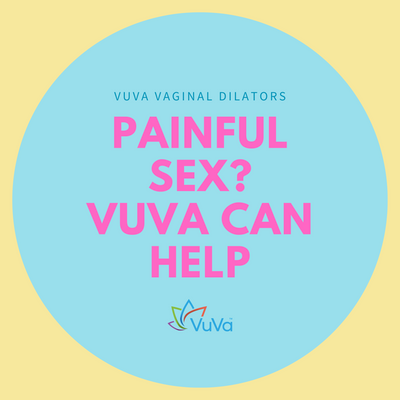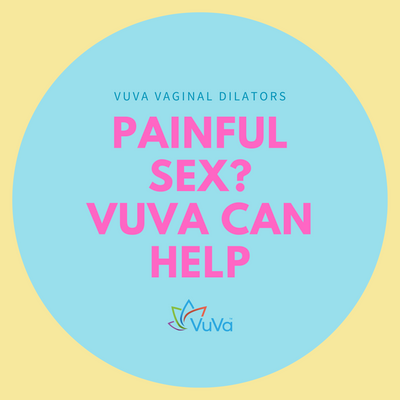
| Caroline Knight
5 Possible Reasons Your Vaginal Trainers Aren’t Working
There is no doubt in the minds of women’s health experts that vaginal dilators (also called vaginal trainers) are some of the best tools for resolving a range of gynecological issues, from vaginismus to vaginal atrophy. It is easy to find studies supporting the use of vaginal dilators; likewise, there is a wealth of anecdotal evidence in the form of dilator therapy success stories online. However, if you have problems using a vaginal dilator, it may not be obvious why that is or what you can do about it. You might believe you are using dilators incorrectly, but that may not be the real problem.
As with any therapy, we are all different, so some women may have problems using vaginal trainers - especially if they aren’t used to it. Am I using my dilator correctly? It’s been a while now… is my vaginal dilator working? Could I damage myself with a vaginal dilator? Is a dilator going to hurt me? Any number of questions may be buzzing around your head, creating anxiety or negative expectations, and ultimately contributing to difficulty doing vaginal dilating.
In this article we have listed some of the most common reasons for vaginal dilators not working as expected according to vaginal dilator studies. We hope that it will help to identify your problems with vaginal dilating and make the necessary adjustments and move toward successful dilator therapy…
Why aren’t my dilators working?
A review of 21 studies on vaginal dilators brought to light some interesting reasons dilators might not be working for all women who use them, despite professional consensus that they are some of the best treatment tools for gynecological issues. Among the identified barriers to therapy adherence, “unhelpful circumstances” and “negative perceptions of the vaginal dilators” were the two mentioned most often.
Interestingly, positive results were aligned with “supportive interactions with health care providers” and “risk perception and positive outcome expectancies”. This indicates that it is not necessarily the dilators that are the problem, and that resolving an underlying or concurrent problem may lead to successful vaginal trainer therapy.
As outlined in the review, our health behavior tends to be guided by perceptions, meanings, and beliefs. Therefore health care providers can improve women’s adherence to vaginal trainer therapy by understanding how a woman perceives it. They can then introduce targets for improving unhelpful perceptions and improve the chances of a successful outcome.
As highlighted by various studies, here are some of the main reasons for difficulties with vaginal training, and why they might be happening:
-
Unclear or missing instructions on the use of vaginal dilators
If you are wondering how to dilate properly, you obviously don’t have clear instructions to hand, or haven’t been given sufficient training. There could be various reasons for this:
According to one vaginal trainer study, “Patients who purchase dilators have often suffered with their condition for a long time and had difficulty finding a competent health-care clinician well versed in sexual pain syndromes that can help them. When patients did find a clinician, there were no clinically proven standardized protocols or formalized guidelines to give to patients about how to best use their dilators.”
Although a lack of dilator instructions may simply be an oversight on the part of your practitioner, it also could be down to assumptions that you were comfortable or confident, when in fact you were not. Perhaps you felt anxious and didn’t absorb the information on using dilators correctly, or perhaps your practitioner was simply not experienced enough to give clear and concise instructions.
-
Unsupportive health care providers
It is an unfortunate fact that some women’s health practitioners have become desensitized to their patient’s plights, perhaps for having seen so many of them. When carefully relayed information or warm support is not forthcoming, it can feel even more awkward to attempt to discuss the use of vaginal trainers. Especially when you are not close to the person and they don’t seem to care about your success!
However it is your practitioner’s job to do so, and even if you are, they should not be embarrassed by it. Successful dilator therapy may depend on it. Whatever the reason, it is important to ask for proper assistance from your practitioner, or find one who is more experienced or conscientious.
-
A negative perception of vaginal trainers
Even if this is subconscious, or not fully conscious, it’s certainly a possibility - especially for women who have a history of fear of penetration or sexual acts. Some women perceive a loss of modesty or dignity when using dilators, and others experience emotional or mental flash backs to traumatic experiences, from painful cancer treatments to sexual violence.
This can naturally translate to a negative perception of an instrument that may cause physical discomfort (at least initially) or bring up challenging memories. If you suspect that your dilator therapy isn’t working well because of such perceptions, it may be prudent to seek concurrent psychological support.
Some women may not have understood the benefits of vaginal trainers in relation to their particular issue, and may need more clarity around this so as to be able to relax and trust the process.
-
A tendency to expect negative experiences or outcomes
Many studies have concluded that women can experience undesirable emotions and expectations while using vaginal trainers, from embarrassment to fear and anxiety. It is common to anticipate pain (whether you actually feel it or not), which can cause tension. For some people, life conditions them to expect things not to go well, and this expectation might be transferred on to your vaginal trainer therapy.
This could prevent proper or consistent use of the dilator, thwarting positive results or making them take longer. As with point 4, if this sounds familiar, it may be an idea to seek some psychological support around life expectations, or to have a session with a women’s health professional to calm your nerves and help make your expectations more positive.
-
Poor quality or incorrect sized dilators
It may be that you are using dilators that are not made from medical-grade materials (or comfortable materials for such a sensitive area). Perhaps they were not designed ergonomically, or perhaps they were too basic for your condition.
For example, magnetic dilators help to sooth nerve pain associated with vulvodynia, while simple plastic ones might only help a woman to become accustomed to the penetration. The quality of your dilators is as important as using the correct size for your capacity and health concern. If you get this wrong, it may result in ineffective dilator therapy.
 Shop for VuVa Vaginal Dilators
Shop for VuVa Vaginal Dilators
Other women on using dilators successfully
Sometimes perseverance is required with troublesome conditions such as vaginismus and vulvodynia. Even if it seems like dilators aren’t working quickly, or you can’t get used to them, don’t give up too easily. It may be that you are having difficulty dilating because you have been using the wrong sized dilators, or perhaps not the best quality dilators.
Since we make some of the best vaginal dilators available, we get plenty of confirmation from happy customers, which we hope will inspire you to trust in the efficacy and safety of vaginal dilators. The below recent testimonials on successful dilator therapy with our vaginal trainers should give you some faith in the process:
“I first developed vulvodynia/vaginismus about 7 years ago. No reason it just happened. I have and continue to try lots of treatments but nothing has worked so far. I have seen these dilators pop up for years when I've been researching, but having had little improvement with other dilators I always ignored it. It came up again and this time I decided to read the reviews and thought I will take the risk and try them. I have been using for a month now and I've never seen an improvement with the vaginismus before like I have with these. I am now on the largest size!! (I started with 3 or 4 i think). I'm still on a journey to heal but this is set is helping me go a long way on it. I would definitely recommend!”
“These vaginal dilators have drastically changed my life! Once I was finally comfortable inserting the largest size, I felt a huge weight lift off my shoulders. Vaginismus has controlled my sex life for too long, and these dilators have finally relaxed and stretched my vaginal muscles to the point where I can have pain-free sex! I was a little skeptical at first that these dilators would even work, but they were amazing. I would highly recommend these to anyone suffering from vaginismus or other related conditions.”
You can read more vaginal trainer testimonials here.
Resources
Vaginal dilator exercises
https://www.vuvatech.com/blogs/care/do-dilators-really-work
How long does it take for dilators to work?
https://www.vuvatech.com/blogs/care/how-long-does-it-take-for-dilators-to-work-vuva-dilator-company
Scared of vaginal dilators? 5 Reasons you shouldn’t be
https://www.vuvatech.com/blogs/care/are-you-scared-of-vaginal-dilators-5-reasons-you-shouldn-t-be
VuVa Helpful Links:
How do Neodymium Vaginal Dilators work?
7 Reasons for a Tight Vagina and How to Loosen
How to Relax Vaginal Muscles, Vaginismus & Sex
Vaginal Stretching - Keeping in Shape with Dilators
Do Dilators Really Work? Yes, and They can Improve Your Sex Life!
Shop for VuVa Vaginal Dilators













